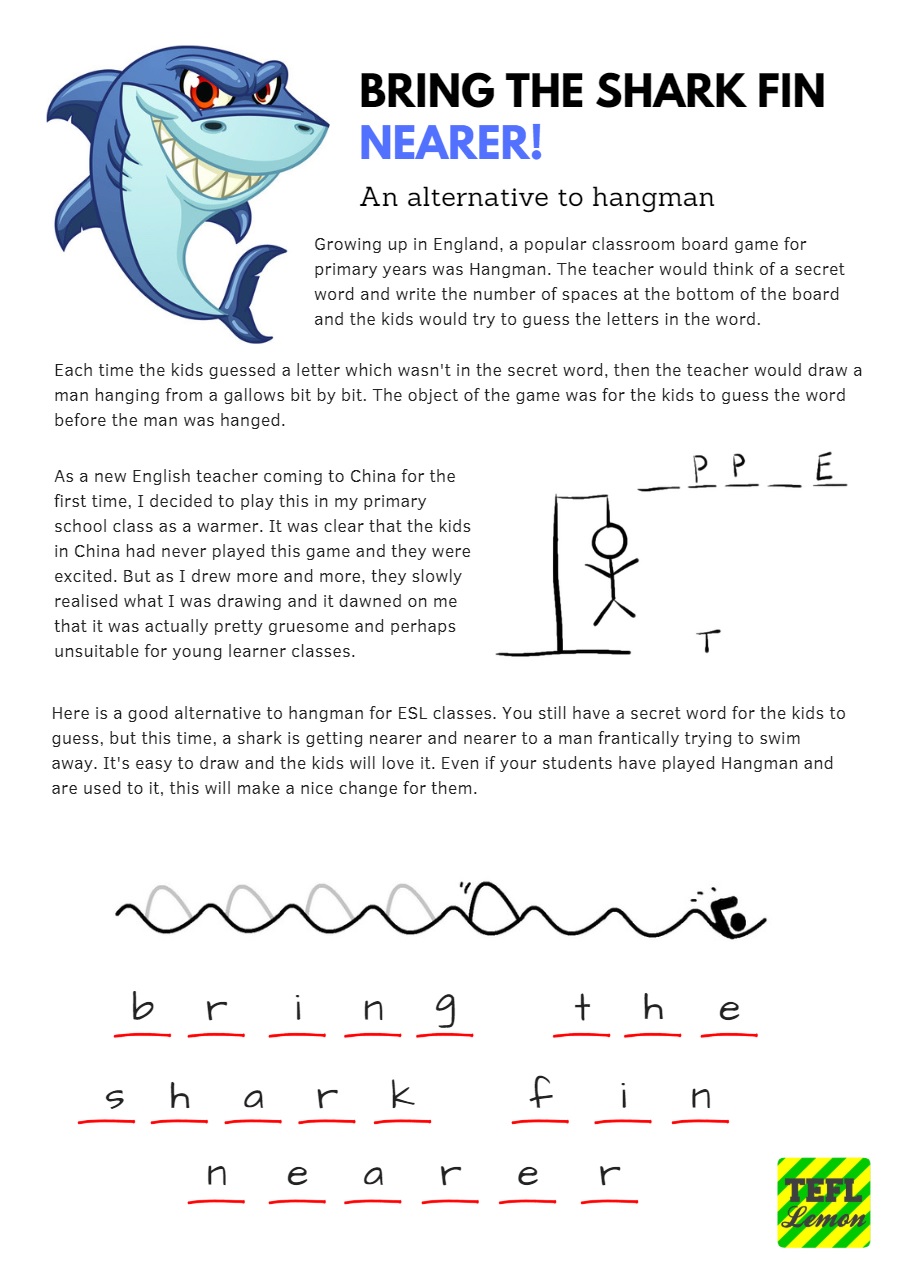Games are an integral part of any ESL teachers arsenal. They are a great way to learn, practice and assess lesson content. Students enjoy games and they can even be used as a reward for good behaviour. But not all games work well for every class.
Almost any game is fine for a class of well-behaved students, but you must be more thoughtful about the games you select for classes who tend to misbehave.
In this article I will explain three games that work well for three different types of classes. We’ll start with a class that behaves poorly, then a class that is mixed, and finally a class with very good behaviour.
What are we waiting for? Let’s play!
Classes that behave poorly
The last thing you want to do with a class that misbehaves is get them up out of their seats. It’s a shame because the games that involve students moving around are usually the most engaging and fun, but they aren’t always a good idea. Games lead by the teacher are the most appropriate for classes that act up, because of this we land on an old classic, ‘Hangman’.
For younger classes it is advisable to ditch the hanging man and replace him with a more child friendly sense of jeopardy. Maybe a stick drawing of the teacher hovering precariously over a sea of slime, anything funny or silly will work here. Each time the class gets a letter wrong the jeopardy edges ever closer.
Incorporating competition into the game by splitting the class into teams will also help keep the students motivated. Nothing happens if a student gets a letter wrong, but they receive a point for their team if they get one right. Rules such as no shouting, with a point being awarded to the other team for anyone who breaks it, can be very useful for loud classes.
‘Hangman’ can be used during the warm up to recap or introduce class content, or at the end of the lesson during the assessment as well as the cool down. But it is important that the teacher always plays the game with energy and enthusiasm, making a big deal of each letter and the points system to motivate students and keep them engaged, especially if they tend to misbehave.
Mixed classes
Next we have a game that works for almost every class, all that is needed is some tweaking depending on the students level of behaviour. This game involves a few or many students getting out of their seats and can be very exciting, so it’s better to keep it for the end of the lesson during the assessment or cool down. It is called ‘Splat’.
Focussing on some previously learned vocabulary or phrases, about animals or verbs for example, a group of students representing their team will come up to the front of the class. On the board will be a nine-by-nine grid and inside each square will be a word, phrase or image. Students from different teams will stand in front of the grid and the fun can begin.
The teacher will call out one of the squares on the grid and the first student to touch it will get a point. Equip the students with rulers so they can reach further and do not smudge any writing on the board. If the class is very well behaved then a small group from each team can line up in a queue, taking turns, or one student from each team at a time if not.
This is a great way to see if students have learned the content from the lesson and can be a reward for good behaviour, by playing the game itself or allowing individual students to come up and get involved. It can get as complicated or as simple as you like, it is a very flexible game that students of all ages like as their competitive nature comes out.
Well-behaved classes
Last but by no means least is a game that only really works for students who are very well behaved. But you need a fair amount of time to play it so save it for the end of class. To start with students need to move their desks to the edge of the classroom and arrange themselves standing in a circle, because this is the ‘Circle Game’.
It’s inspired by the game ‘Categories’ where players say words from a category one after another, then if somebody hesitates or stumbles they are out. You can make the game as simple or complex as you like, animals or colours for young learners, or each word having to start with the last letter of the previous for older learners. It really can work for any level.
But due to the fact every student is out of their seat and the teacher has their back turned to many of them at one time, they must be very focussed and well behaved. Problems can arise when students are out of the game, especially if there are a group of friends next to each, so don’t hesitate to mix up the circle and offer another chance for those who behave.
The completive nature of students and their desire to win usually keeps them focussed, but the teacher should ensure this by making a big deal out of the game and keeping them guessing. The winner will get a lot of praise and sometimes even a prize, and those who are no longer playing should get excited to see who wins, really have fun with it.
Most games can work for all classes with small tweaks and an understanding of students behaviour. Sometimes games will go well and other times they will not, it’s important that the teacher is never scared to stop a game and learns from those that don’t go to plan. But as long as the students are having fun whilst learning or practicing lesson content, or being assessed, then you’re on to a winner!
Check out our programs in China, Thailand, Vietnam, Hungary and Poland.
Or get in touch here with any questions about teaching abroad: info@impact-teaching.com




